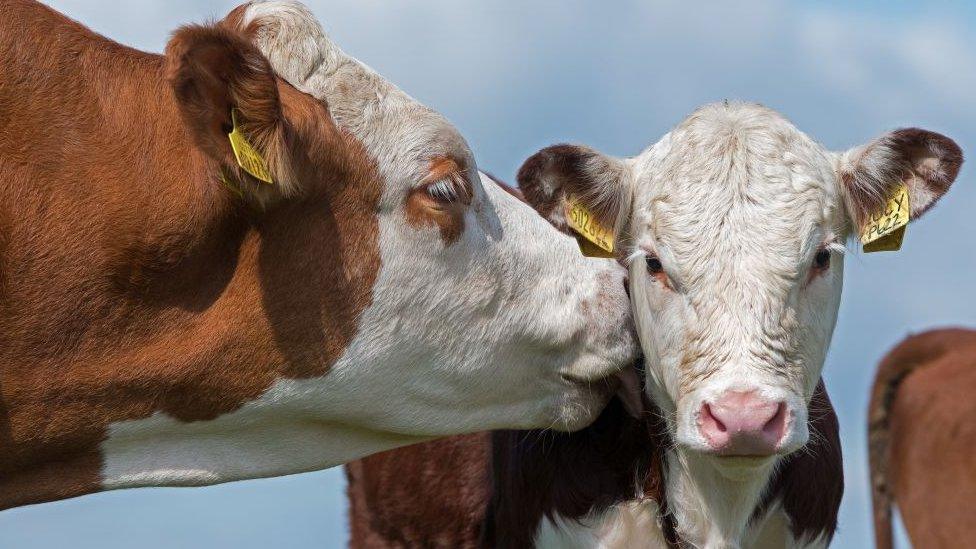UK yet to see full impact of Brexit trade deals, says minister Badenoch
- Published
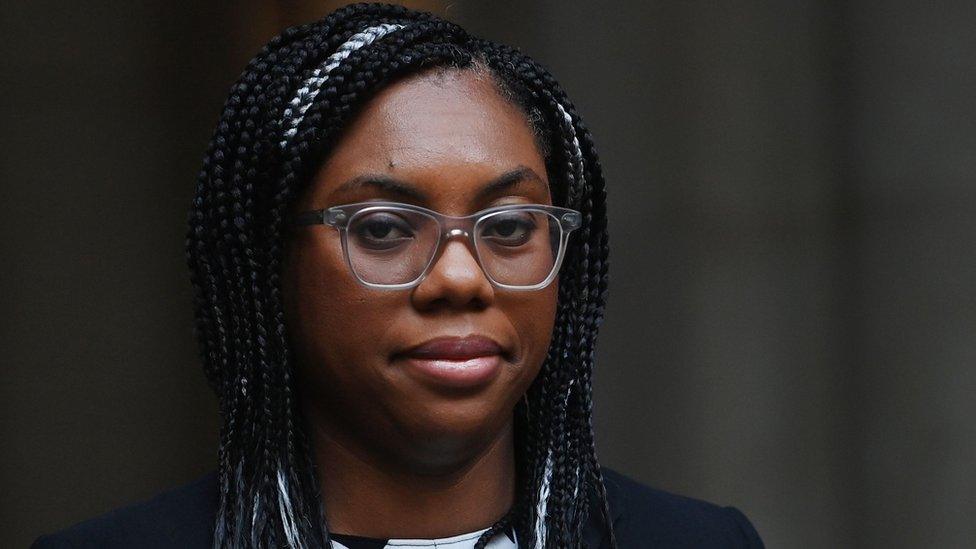
The full impact of Brexit on trade is "yet to be seen", International Trade Secretary Kemi Badenoch has said.
Speaking to MPs, she acknowledged "all change is difficult" but said the UK could benefit from making its own trade deals with other countries.
The minister also defended the UK's deal with Australia, against fierce criticism from former Environment Secretary George Eustice.
Earlier this month, he accused the government of giving away "too much".
Ms Badenoch said she disagreed and that it wasn't right to talk as if the agreement would "ruin our economy".
"The deal isn't even in place yet and we're already talking it down," she told the international trade committee.
The free trade agreement with Australia was the first post-Brexit deal negotiated from scratch.
Leaving the EU gave the UK the freedom to negotiate its own trade deals, and since Brexit, the UK has signed agreements with 71 countries.
However, the majority of these are simply "rollovers" - meaning they copied the terms of deals the UK previously had when it was an EU member, rather than creating new trading arrangements.
Ms Badenoch argued that Brexit gave the UK the opportunity to pursue deals with growing markets in Asia-Pacific.
However, the government's independent forecaster, the Office for Budget Responsibility, has recently warned that Brexit was having a "significantly adverse impact" on UK trade.
During a question session with the International Trade Committee, Ms Badenoch was pressed on the impact of Brexit on the UK's trade performance, with Conservative Mark Garnier expressing concern that the UK had lower export figures than other advanced economies.
Ms Badenoch acknowledge that, on exports, the UK "should be doing better" but was recovering from global factors such as Covid and the war in Ukraine.
She argued the UK only fully left the EU at the beginning of 2020 and that "the full impact of what we're going to see post-Brexit and all of the free trade agreements is yet to be seen."
"There is a whole world out there - just looking inward and saying 'there is nothing happening except in the EU' is just not realistic.
"It's the 21st century and other countries all across the globe are growing - we need to strengthen our relationships with them, not pretend they don't exist."
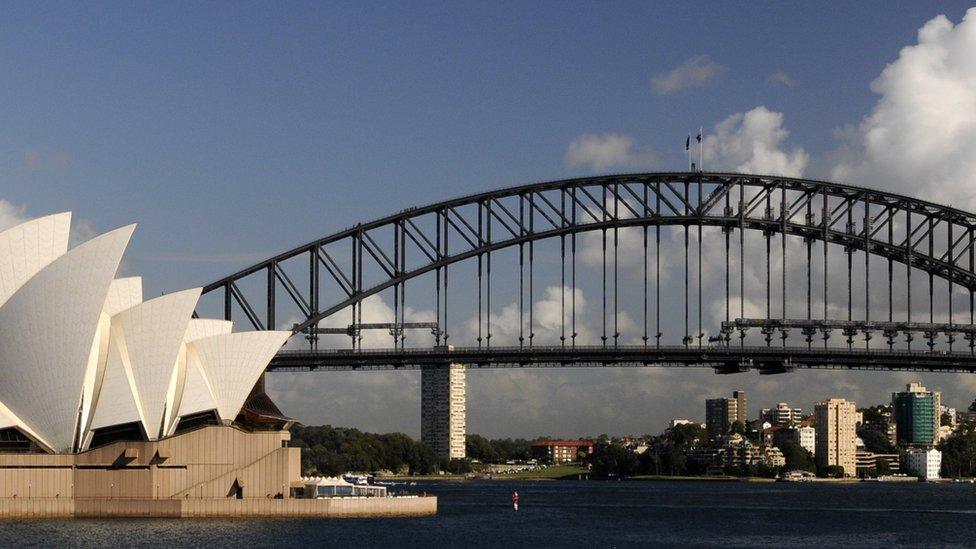
The deal with Australia will reduce extra costs and taxes on exports and imports between the two countries
Earlier this month, Mr Eustice strongly attacked the UK's agreement with Australia, accusing the government of giving "far too much for far too little in return".
He argued that then-International Trade Secretary Liz Truss had put the UK "on the back foot" by insisting the terms of a deal had to be agreed before a G7 summit in June 2021.
Asked about her colleague's comments, Ms Badenoch said she disagreed with "almost all" of Mr Eustice's arguments and insisted the UK hadn't "given anything away".
She attacked critics of the deal adding that the UK was "barely getting through the Australia deal, with all the negativity we are getting".
However, she did agree with Mr Eustice about the danger of setting hard deadlines for achieving trade deals.
She told the committee she had differed from Ms Truss, when she was prime minister, over the need to reach a free trade agreement with India by Diwali.
She said the current Prime Minister, Rishi Sunak, concurred with her about the need for "quality over speed" during trade negotiations.
On the possibility of reaching a trade agreement with the US, Ms Badenoch said President Joe Biden had been clear he didn't want to do a deal with any country.
"That is not about the UK," she said adding that the two countries could still work together on removing tariffs, despite the absence of an agreement.
The minister sought to downplay the importance of free trade agreements, arguing that it didn't in itself mean trade couldn't take place.
"I would like us to move away from the Department for International Trade being seen as the department for free trade agreements and back to the department for international trade," she said.
Related topics
- Published14 November 2022
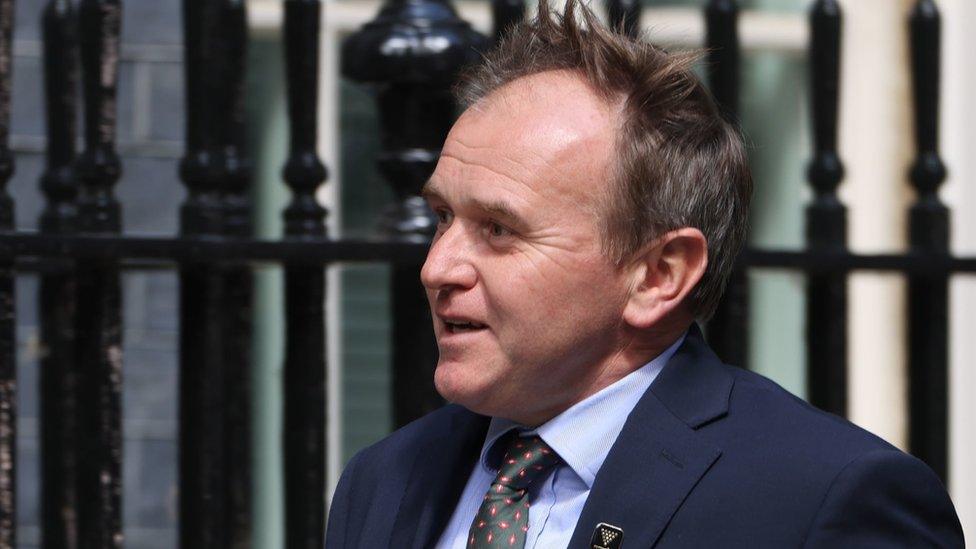
- Published26 January 2024
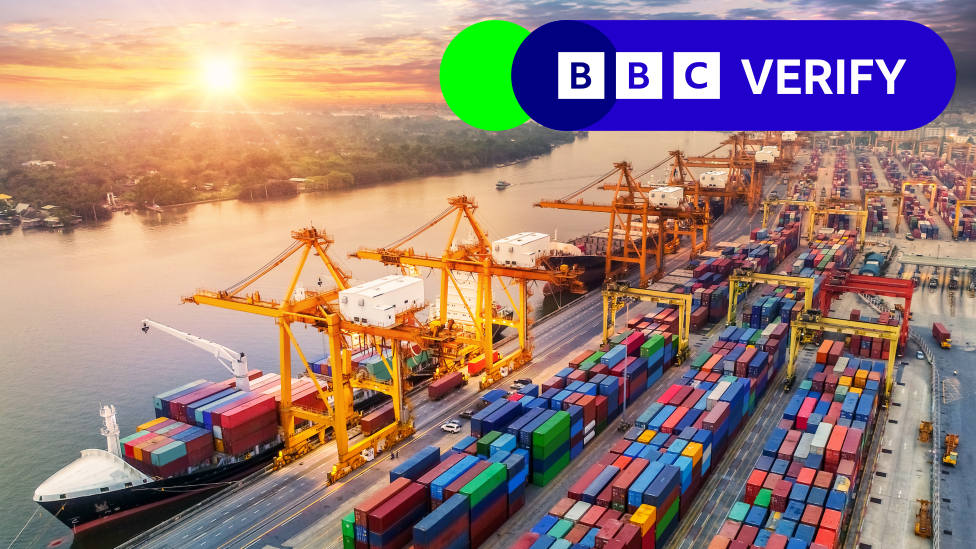
- Published17 June 2021
